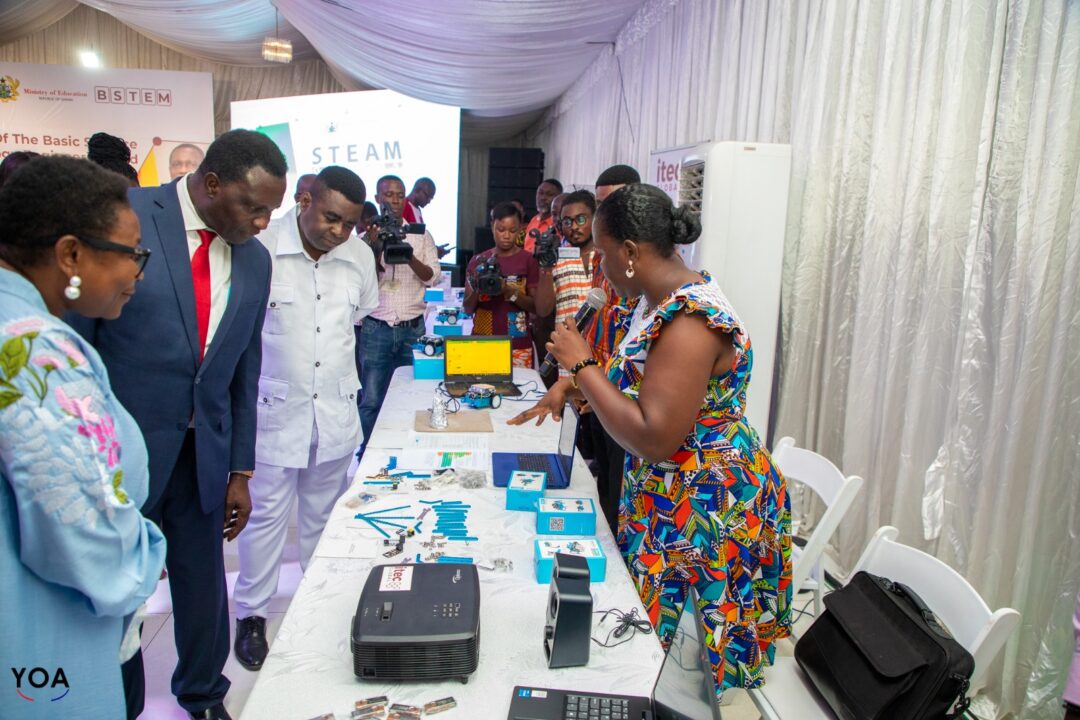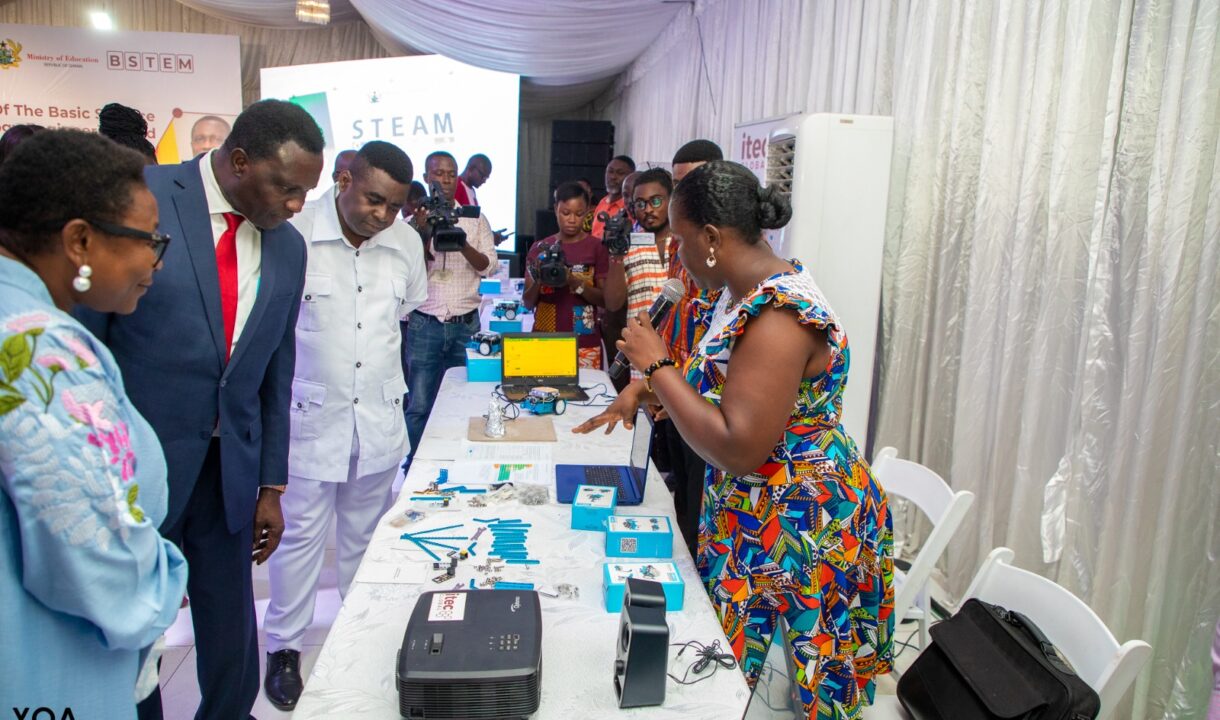The government, through the Ministry of Education, has launched phase I of the Basic Science, Technology, Engineering, and Mathematics (BSTEM) for every child in the country.

The project will introduce technology and engineering into the basic education curriculum using robotics kits and programming activities.
The BSTEM project will improve the teaching of science and mathematics in basic education by providing resources and equipment for active learning in the classroom.



Speaking at the launch of the project in Accra, Dr Yaw Osei Adutwum, Minister of Education, said the project would prepare and equip Ghanaian students for an increasingly technological world.
The Ministry of Education is partnering with Itec Global, a U.K.-based company specialising in STEM education, to provide all basic education schools with STEM equipment and train almost 50,000 basic education teachers over the next five years.


Phase I of the project will supply STEM equipment to 4,400 junior high schools and train over 8,800 junior high school science and mathematics teachers.
A team of more than 40 specialist science and mathematics advisors will be trained to support their JHS teacher colleagues through the implementation of the programme.
In addition, 4,400 primary schools will receive STEM equipment, and 30 specialist primary advisors will train a primary teacher from each school in new STEM classroom activities.
The Minister said the project would fill the gap to make sure STEM education started from kindergarten all the way to high school.
“There’s a major emphasis here on the junior high schools, but it doesn’t mean that the lower levels are also not going to be benefiting.
“Our goal is very simple: we need to create a STEM ecosystem, and that cannot just be done at a high school but at the primary level as well,” he said.
Mrs Olivia Sewah Opare, Director of STEM, said the project would help with effective practical hands-on activities on science, computing, robotics, and mathematics.
That, she stressed, would inform the learner to make informed decisions on their choices of science courses at the higher level of education.
Mr Sam Godding, Director of Itec Global, said under the project, new robotics kits, engineering activities, and programming software would provide students with robust critical thinking and problem-solving skills.
These, he added, would prepare the learners for careers of the future in new and emerging technologies such as AI and Source:
GNA




















